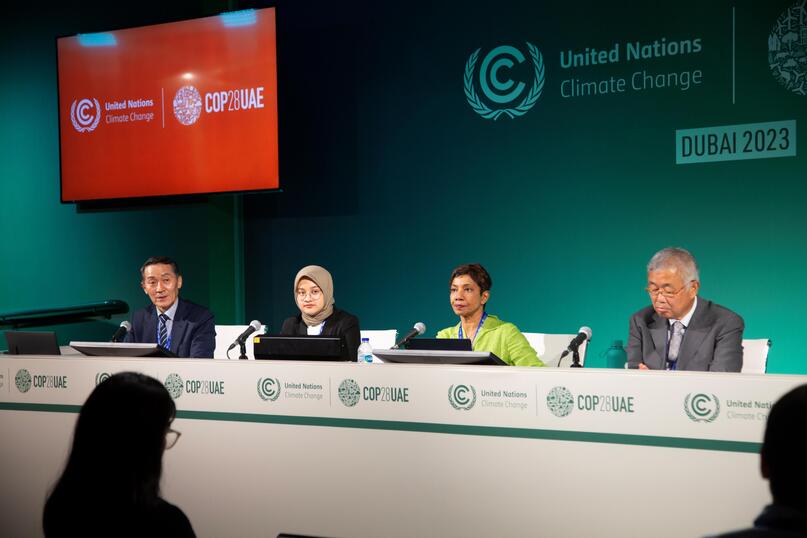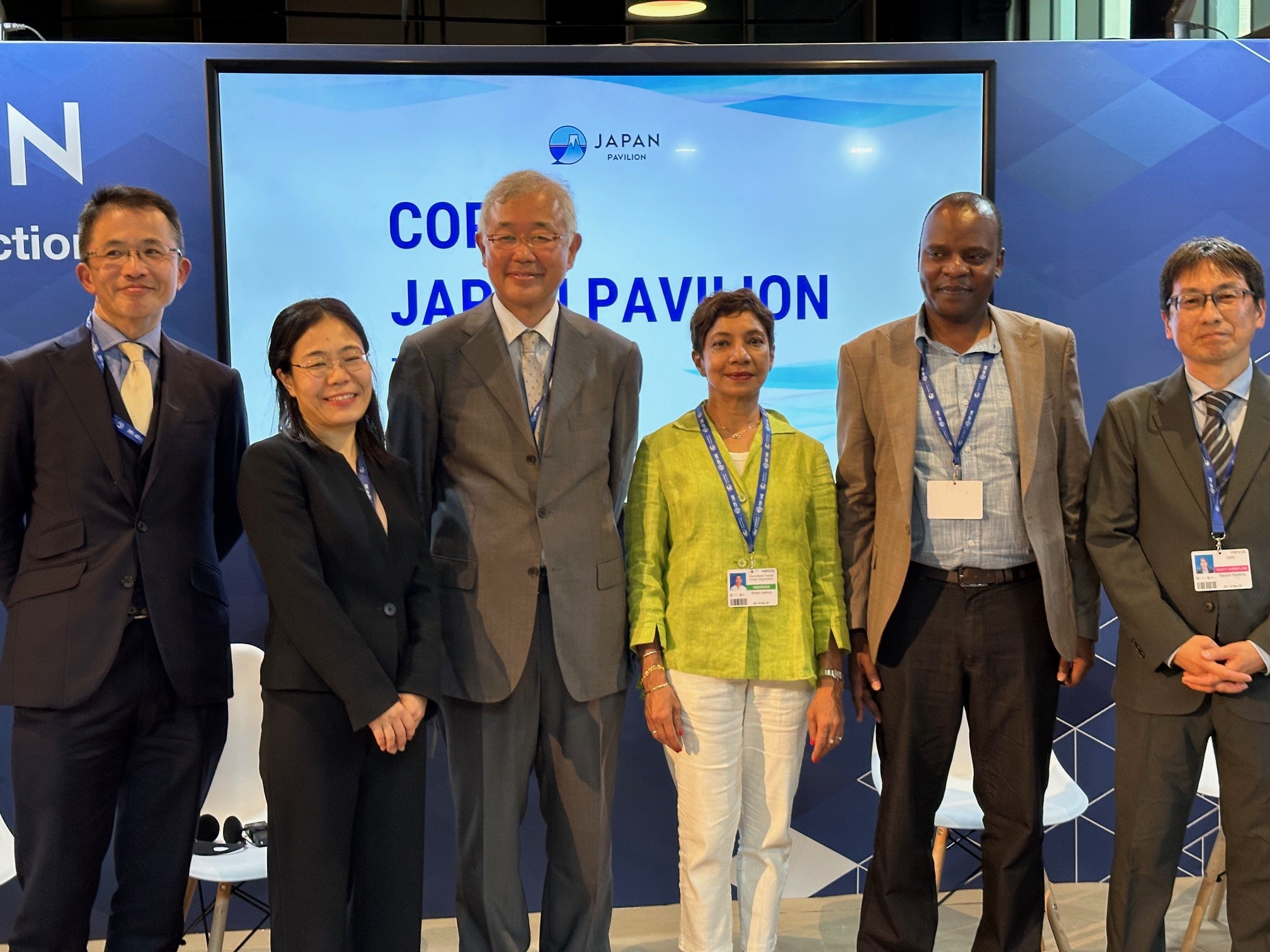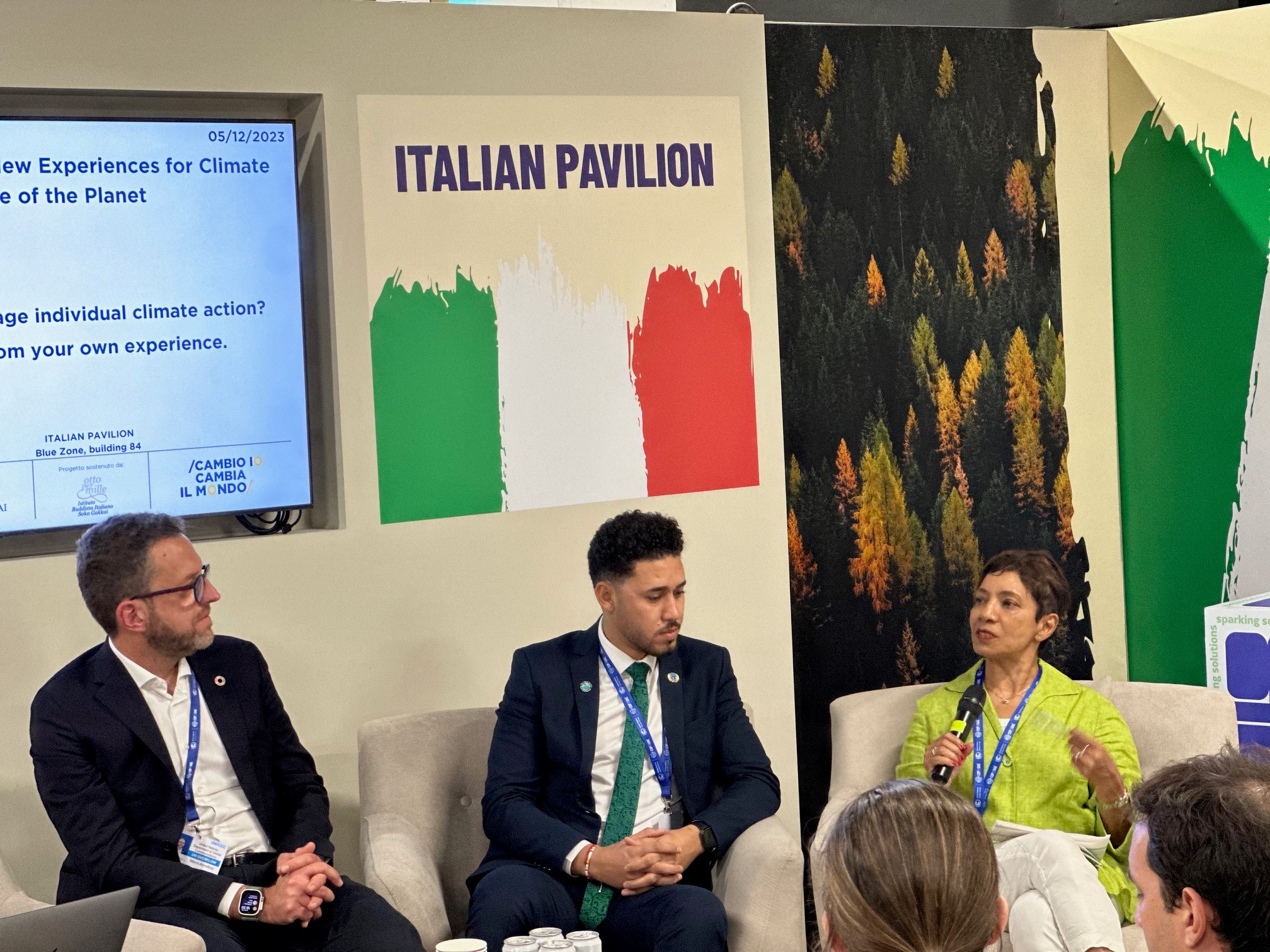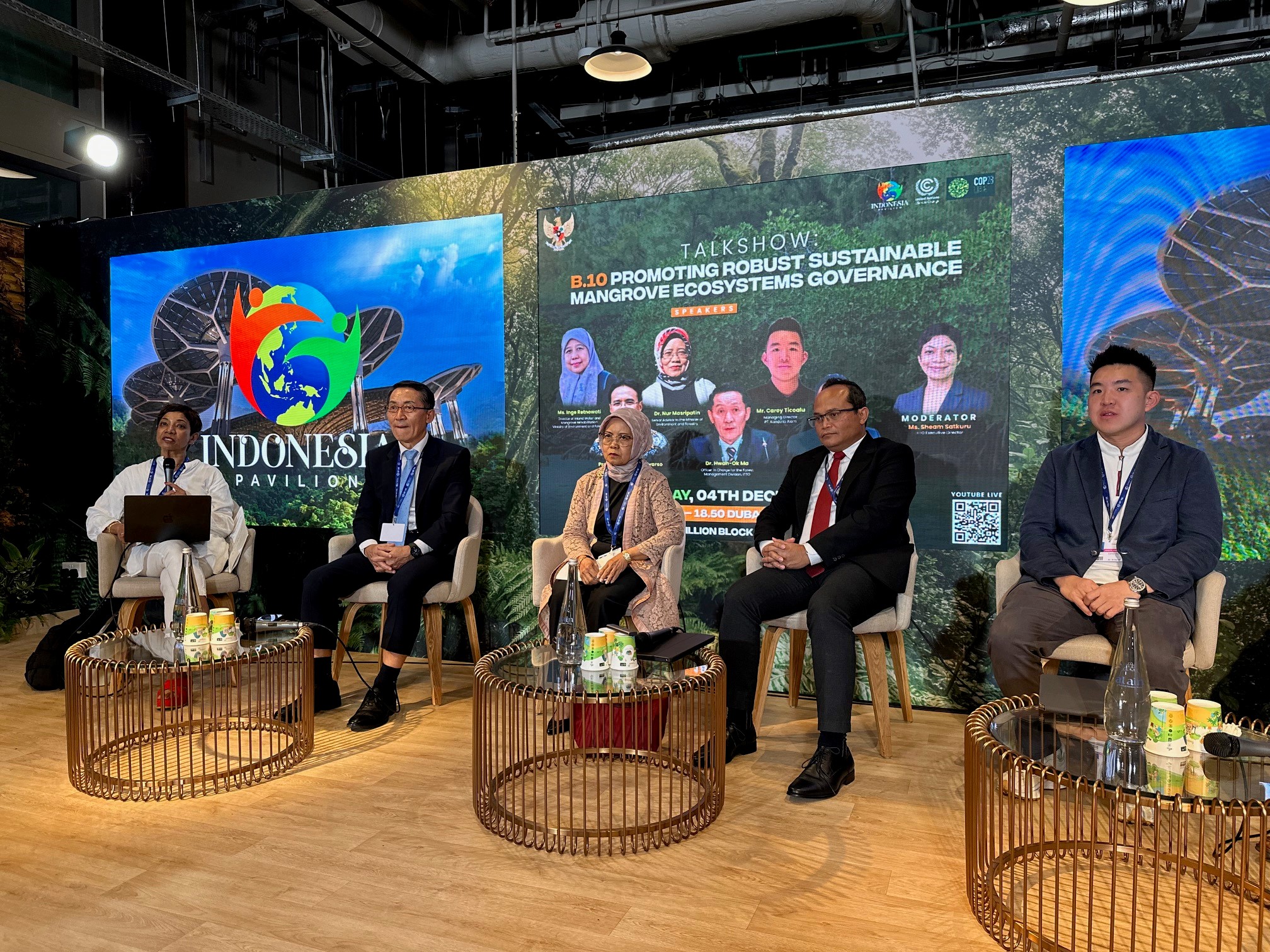At COP28, ITTO appeals for more climate finance for tropical forests
7 December 2023

Plenary of the side-event Advancing Sustainable Forest Management: Financing Mechanisms for Carbon and Biodiversity co-organized by ITTO and partners. Photo: Angeles Estrada/IISD-EBN
Dubai, UAE, 7 December 2023: More funding must flow into sustainable forest management (SFM) to realize the potential of tropical forests to provide urgently needed nature-based solutions to the challenges of climate change as well as sustainable development.
This key message was amplified by several speakers at a side-event organized on 5 December 2023 by ITTO and partners during the 28th Conference of the Parties to the United Nations Framework Convention on Climate Change (COP28) in Dubai, United Arab Emirates.
ITTO Executive Director Sheam Satkuru told the gathering, assembled under the motto “Advancing Sustainable Forest Management: Financing Mechanisms for Carbon and Biodiversity”, that tropical forests have struggled to attract the investment needed to realize their potential.
“There is so much more that forests can be acknowledged and recognized for in terms of not just socioeconomic and environmental protection, but also [carbon] sequestration and storage rates,” Ms Satkuru said.
Ms Satkuru also acknowledge that it was of “paramount importance” to implement sustainable finance mechanisms for tropical forests to reduce their loss, optimize their management, enrich ecosystem services and boost social and ecological resilience, including for Indigenous Peoples and forest-dependent communities.
As well as more public finance, speakers underlined that tropical forests need more investment from the private sector; policymakers need to redouble efforts to create incentives to reduce investor risk, including through tax reforms and blended finance.
Hwan Ok-Ma, Officer-in-charge, Division of Forest Management, ITTO, talked of SFM as a nature-based solution for carbon emission reduction through timber production enhancement, including practices such as reduced impact logging and wood-based bioenergy. He showcased ITTO’s programmatic line on Legal and Sustainable Supply Chains for tropical timber and tropical wood products, illustrating its multiple benefits through an ITTO project that promoted sustainable production of teak in the Greater Mekong. The project improved silvicultural practices, value-addition and marketing benefiting forest-dependent communities. The second phase of the project has just started.
Yasumasa Hirata of the Forestry and Forest Products Research Institute (FFPRI), Japan, said that, by one estimate, public finance for SFM is less than 1 per cent of the USD 460 billion required and is dwarfed by public spending on potentially harmful forest activities.
“Even if all gray public finance flows were redirected to green, finance totals would still fall woefully short,” Dr Hirata said. “Therefore, a significant increase in funding for forests is an urgent issue.”
Faiha Azka Azzahira, President of the chapter of the International Forestry Students’ Association (IFSA) at LC Universitas Gadjah Mada, Indonesia, emphasized the importance of youth for securing tropical forests and their role in sustainable development.
Young people can contribute through organizations like IFSA, as well as through their communities, their studies and careers, Ms Azzahira said. IFSA members are networking and connecting youth across different regions, advocating for forests and raising awareness.
“The younger generation plays a crucial role in shaping the future. We are the agents of change,” she said.
The side-event also heard presentations from Oseas Barbarán Sánchez, President of the Confederación de Nacionalidades Amazónicas del Perú (Confederation of Amazonian Nationalities of Peru) (CONAP), who called for more direct climate finance for Indigenous Peoples who have shown their ability to manage the ecosystems of the Amazon sustainably; and from Suneetha Subramanian, a Research Fellow at the United Nations University-Institute for the Advanced Study of Sustainability, who described in a video presentation an assessment of fourteen ITTO forest landscape restoration projects which have empowered women, in closing she emphasized the relevance of stakeholder consultation for this type of projects.
Coverage of the side-event by IISD/Earth Negotiations Bulletin reporting services is available here.
Sustainable wood use for climate change mitigation
In the side-event “Sustainable Forest Management for the Mitigation and Adaptation against Climate Change” held at the Japan Pavilion on 5 December 2023, Ms Satkuru explained how sustainable wood use can contribute to climate change mitigation by adding value to forests, a key factor in reducing their conversion to other land-uses.
She highlighted ongoing case studies by ITTO in Indonesia, Malaysia, Thailand and Viet Nam with the aim of strengthening the domestic use of wood as a substitute for less environmentally friendly materials. The use of sustainable wood offers great potential to cut the construction industry’s greenhouse gas emissions and assist countries to fulfil their commitments under the Paris Agreement.

Dialogue and new experiences for climate action
Ms Satkuru also took part in a discussion entitled “Dialogue and new experiences for climate action and care of the planet” organized by the United Nations Development Programme and non-governmental organization Istituto Buddhista Italiano Soka Gakkai at the Italian Pavilion on 5 December 2023. The discussion focused on how to generate momentum for transformation change, including further engagement with the youth.

Sustainable management of mangroves
ITTO also participated in the session “Promoting Robust Sustainable Mangrove Ecosystems Governance” held at the Indonesian pavilion on 4 December 2023 and jointly organized by ITTO, the Center for International Forestry Research-World Agroforestry Centre (CIFOR-ICRAF), the M style="font-size:20px"inistry of Environment and Forestry of Indonesia and PT. Nusantara Carbon/PT. Kandelia Alam.
Ms Satkuru moderated the session, where ITTO’s Hwan Ok-Ma, described ITTO support for the development of a regional strategy for sustainable mangrove ecosystems by the Association of Southeast Asian Nations.
